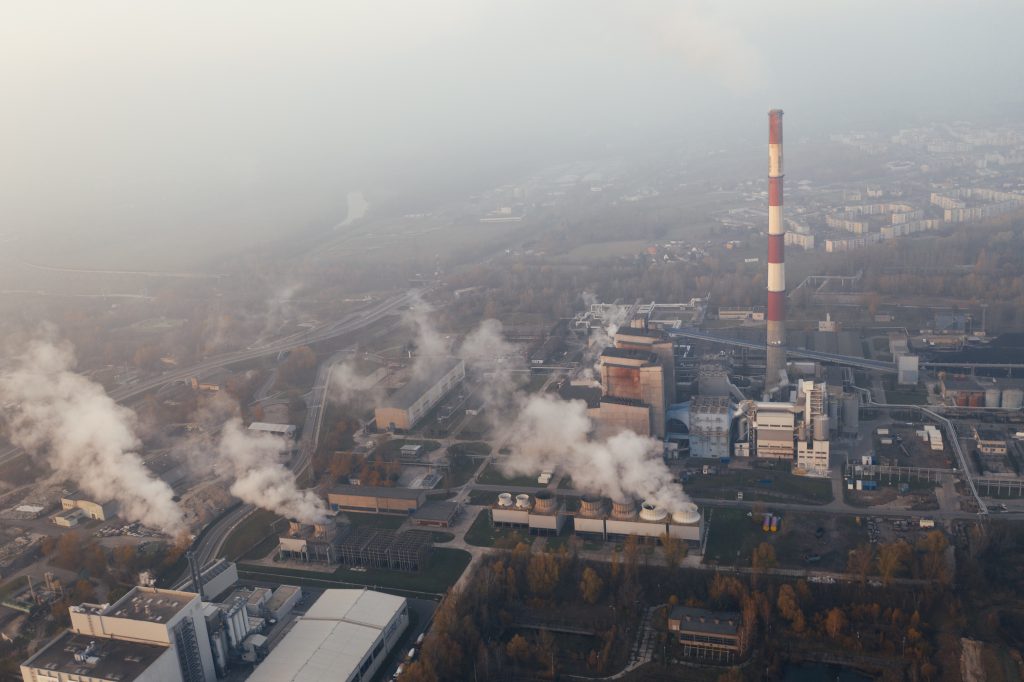
Combating Climate Change: Is Adaptation a Viable Solution to Climate Change?
Article by Jahiem Mclean
Photo by Marcin Jozwiak on Unsplash
The general consensus surrounding climate change seems to be that there needs to be a drastic response in order to combat its most severe effects, however, it is quite widely contested what form this response should take.
One suggestion is adaptation which Giddens argues is a rather misleading term meaning reacting to the consequences of climate change after they have occurred when adaption to climate change should be anticipatory and preventative[1]. This distinction is important as a response to climate change will altogether be much more effective in reducing the severity of its impacts if said impacts are avoided altogether rather than allowing said impacts to occur and responding afterwards. The use of this method can be seen through the creation of international agreements to reduce greenhouse gas emissions such as the Paris Climate Agreement in 2015 in order to limit global temperature increase to 2 degrees Celsius in order to avoid the severe impacts of climate change such as more intense and frequent natural hazards and extinction of species[2].
Much like Giddens environmentalist groups find issues with the traditional definition of adaption arguing prevention is a more effective strategy for reducing the severity of climate change. These groups tend to be much more critical of current governments response to climate change viewing it to be lacklustre. For example, Insulate Britain is highly critical of the UK government’s response arguing it must do much more to prevent climate change namely investing in low-energy homes with better insulation in order to lower the UK’s emissions and prevent the more drastic effects of climate change[3].
One flaw of environmentalist groups and their strategies to tackle climate change is in the lack of support these groups garner from both the wider public and politicians alike through the disruption they cause. This disruption in turn results in undesirable media portrayals contributing to this unpopularity. For example, news sources such as the Daily Mail often depict the environmentalist group Extinction Rebellion in a demonising light by focusing on the acts this group commits in of themselves instead of the reason behind these acts such as when the group sprayed fake blood over the treasury or dumped seven tonnes of manure at Brisbane and Sydney news corporation offices the many times the group has blocked motorways[4][5][6]. This leads to the ineffectiveness of these environmentalist groups’ strategies because these depictions of their actions stigmatise them from the public preventing them from gaining enough support in order to create effective change through means such as citizens voting for candidates with policies aimed at preventing climate change. These disruptive acts also stigmatise these groups from politicians particularly when directed at said politicians. This is problematic because politicians are unlikely to create policy which is aligned with groups they are stigmatised. For example, earlier this year Greenpeace trespassed into the current prime minister, Rishi Sunak, ultimately leading the Department for the Environment, Food and Rural Affairs to cut ties with Greenpeace[7]. This makes combatting climate change through adaptation, through the interpretation of prevention, highly unlikely as they fail to gain support from both the public and politicians because this makes influencing policy that would lead the way toward combatting climate change immensely difficult.
However, Giddens counteracts this point by arguing that there are certain conditions under which adaptation would be effective. One such condition is that the rich must bear the burden of leading these changes. This is because these countries have greater resilience meaning a greater ability to cope, respond and adapt to these changes due to holding more wealth and power and due to this greater resilience must aid more vulnerable nations which may not have the wealth and power needed to adapt to climate change by themselves. This wealth and power can be wielded by governments of wealthy countries in order to manipulate built environments in order to withstand the consequences of climate change such as constructing infrastructure that can better withstand more severe and frequent natural hazards such as the strong winds of tropical storms[8]. In this way, responsibility for the viability of climate change does not lie with individuals in environmental groups but with those who wield the most power such as rich countries and governments.
In conclusion, adaptation has the potential to be a highly successful solution to climate change if understood through the lens of prevention and if those with the most power namely governments and rich countries are the ones who pave the way towards these changes.
Footnote:
[1] Giddens, A., (2009) The Politics of Climate Change, Cambridge, UK: Polity Press, pg.162
[2] https://unfccc.int/most-requested/key-aspects-of-the-paris-agreement (accessed 1st November 2023)
[3] Gayle.D (2021), Inside Insulate Britain: on the road with the disruptive climate protesters,https://www.theguardian.com/environment/2021/oct/17/inside-insulate-britain-on-the-road-with-disruptive-climate-group (accessed 1st November 2023)
[4] Lawton.K (2023), Now Extinction Rebellion clowns who bought the fire engine then used it to spray fake blood over the Treasury in eco-stunt cleared of criminal damages, https://www.msn.com/en-gb/news/world/now-extinction-rebellion-clowns-who-bought-fire-engine-then-used-it-to-spray-fake-blood-over-the-treasury-in-eco-stunt-are-cleared-of-criminal-damage/ar-AA1jagax (accessed 1st November 2023)
[5] Wondracz.A(2020), Extinction Rebellion activists play a VERY dirty outside News Cops Sydney offices-forcing executives to step over manure to get to work https://www.dailymail.co.uk/news/article-8696477/Extinction-Rebellion-activists-unload-manure-outside-Brisbane-Sydney-News-Corp-offices.html (accessed 1st November 2023)
[6]Livingstone.N(2020), EXPOSED: Climate change fanatics who were plotting to blockade Britain’s refineries fuel trucks and petrol stations next month in sinister bid to bring down our oil network https://www.dailymail.co.uk/news/article-10480761/Climate-change-fanatics-plot-blockade-Britains-refineries-fuel-trucks-petrol-stations.html (accessed 1st November 2023)
[7] Allegretti.A(2023), Defra ordered to cut ties to Greenpeace after Sunak roof protest https://www.theguardian.com/uk-news/2023/aug/04/greenpeace-activists-who-scaled-rishi-sunak-home-freed-on-bail (accessed 3rd November 2023)
[8] Giddens, A., (2009) The Politics of Climate Change, Cambridge, UK: Polity Press, pg.163

0 Comments